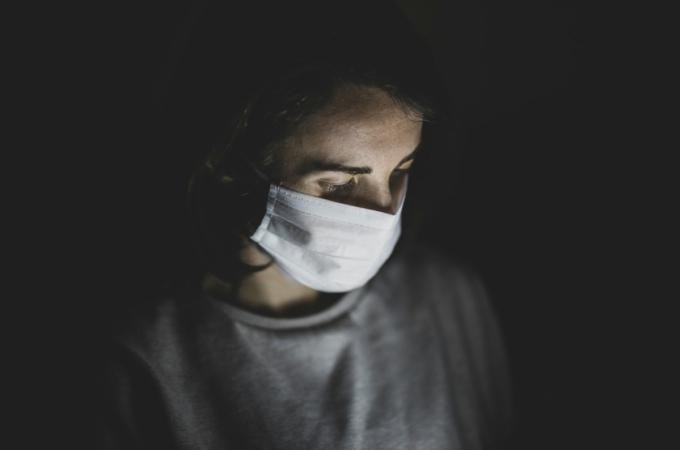COVID and encounter
In the news recently: An amusement park in Japan encouraged roller-coaster riders not to scream. Screaming is a great way to project COVID-19 particles into the air for a much farther distance than speaking. It's why most parishes are encouraging their congregations not to sing during Mass.
But the park offered a helpful suggestion to terrified riders: "Scream inside your heart."
This admonition, hilarious and darkly poetic at the same time, is what captured headlines. Along with distancing and wearing masks, the amusement park was seriously cautioning visitors to scream silently, with bonuses promised to those who could hush their fright.
It didn't take long for the online world to proclaim this as our mantra for the year 2020: Scream in your heart.
I was reminded of arriving at the hospital years ago to give birth to my first child. As I was being shown into my labor and delivery room, I heard loud, piercing screams coming down the hallway.
"Why is that woman screaming?" I asked. No one had mentioned this in childbirth class.
"She's having a baby," the nurse said, in a tone implying I must be an idiot. Where did I think I was?
I resolved not to scream, and through three childbirths I never did, nor saw the need to. So maybe I could win a bonus at the Japanese amusement park as I've proven to be a good silent screamer in my heart.
But should I be?
In laughing about this in a group text, one of my daughters admitted that during this time of COVID, "I'm constantly screaming inside my heart."
In faith sharing groups and in calls with friends, I find more of us admitting in this COVID summer to having days when we "cry for no reason." Sharing this, maybe calling a friend for a good cry, and then a laugh, is better than screaming silently in my heart.
Meanwhile, in a large city, another daughter's boyfriend has returned to work as a cook in a small bar and restaurant. They can't allow anyone inside, but serve carryout, including alcoholic beverages. So many people were gathering to consume their purchases on the street that they placed several socially distanced tables outdoors.
One morning, as the crew prepared to open, their first "customer" arrived early. Unfortunately, there was a problem. She was naked. When the staff approached her at the table, she said someone had stolen her clothes. They called 911.
Two things happened. Other customers came, took seats and ordered food. Occasionally, someone would ask a server, "Are you doing something about that?" pointing at the naked lady.
Would I stop at a bar where one of the customers was naked? I think I'd move on.
The other thing that happened was that while they were waiting for help to arrive, a woman who lived in an apartment above the bar came home and immediately said, "I'll go upstairs and get her some clothes."
The naked lady rejected the clothes. But my day was brightened by this Samaritan, on her way to a home above a bar, proffering her own stuff to cover the nakedness of someone obviously screaming inside her heart.
In his book, "In the Shelter: Finding a Home in the World," the Irish writer and poet Padraig O Tuama repeats this Irish saying: "It is in the shelter of each other that the people live."
Maybe that should be our mantra for 2020: To be shelter to those who silently scream, to hear and help each other when we cry quietly in this daunting summer of COVID.
- Effie Caldarola is a columnist with the Catholic News Service.



















